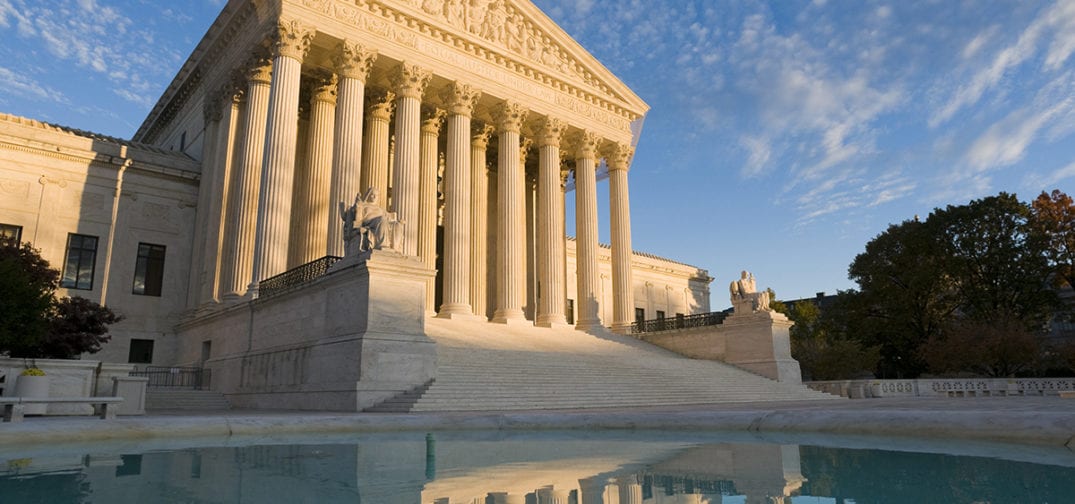A cadre of cannabis advocacy and industry organizations have filed an amicus brief in the case challenging the constitutionality of cannabis prohibition, arguing that the federal government has allowed the nullification of cannabis laws by allowing medical and recreational use programs to exist.
The case was first filed in 2017 but was dismissed by a U.S. Southern District of New York judge in 2018. Attorneys Michael Hiller and Joseph Bondy – who brought the case on behalf of medical cannabis patients – have asked the Supreme Court to hear the case.
The amicus – or friend-of-the-court – brief was filed on behalf of The National Organization for the Reform of Marijuana Laws (NORML), Empire State NORML, the New York City Cannabis Industry Association (NYCCIA), the Hudson Valley Cannabis Industry Association (HVCIA), and the New York City Cannabis Bar by NORML Legal Committee member David Holland, Esq.
In a statement, Holland contends the brief “exposes a fundamental paradox – if cannabis is federally illegal for all purposes, and the three coordinate branches of federal government have acted to allow for cannabis businesses, then the federal government is nullifying its own law.”
“Simply put, under the Constitution, something cannot be illegal and legal at the same time especially when it comes to state laws that conflict with federal laws. The only resolution to this constitutional conflict is for the Supreme Court to invoke the doctrine of estoppel to prevent the federal government from reversing course and retroactively penalizing that which it has protected in fostering state cannabis programs and effectively legalizing it.” – Holland in a statement
The lawsuit – Washington v. Barr – contends that the federal government “does not believe, and upon information and belief never has believed” that cannabis meets Schedule I requirements under the Controlled Substances Act.
In the dismissal, the court had ruled that the plaintiffs had not exhausted administrative options for rescheduling cannabis – namely petitioning the Drug Enforcement Administration. The plaintiffs argue that those current administrative mechanisms are “illusory.”
A decision by the Supreme Court on whether they will hear the case is not expected until next year.
Get daily cannabis business news updates. Subscribe
End
